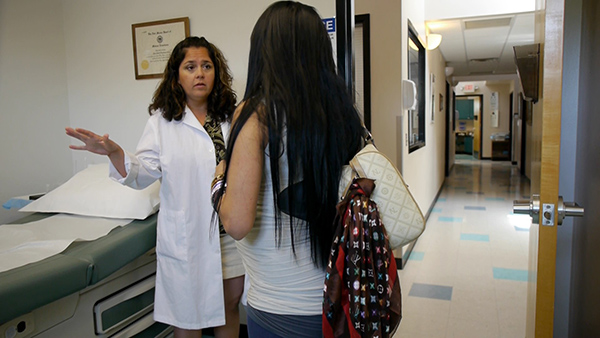In a normal pregnancy, the sperm and egg meet in the fallopian tube, after which the newly fertilized egg moves to the uterus, where it implants and begins to grow and develop.
However, in about 1% to 2% of pregnancies, the fertilized egg implants outside of the uterus—in the fallopian tube or, rarely, in other areas of the abdomen. This is known as an ectopic pregnancy, and it can be life-threatening.
Unfortunately, ectopic pregnancies are not viable—the egg will not develop into a baby, and there is no way to save the pregnancy. You will need treatment right away to reduce the risk of complications and increase the chance of healthy future pregnancies.
The uterus is meant to expand as your baby grows. The fallopian tubes and other nearby organs are not as flexible and are at risk of rupturing as the fertilized egg develops, which can lead to heavy internal bleeding and loss of the fallopian tube and even the ovary.
Let’s look at what causes ectopic pregnancy and the options you have if it happens to you.
What Causes an Ectopic Pregnancy?
Having an ectopic pregnancy is not your fault. We don’t always know why an ectopic pregnancy occurs. Any woman can have an ectopic pregnancy, but your risk increases if you:
- Had a previous ectopic pregnancy
- Are 35 or older
- Have a history of surgery on the fallopian tubes, such as tubal ligation or tubal reversal
- Have a history of endometriosis or pelvic inflammatory disease
- Have a history of sexually transmitted infections, such as chlamydia or gonorrhea
- Had fertility treatments
- Smoke
- Got pregnant with an intrauterine device (IUD) in place
While you may be able to lower your risk of having an ectopic pregnancy, you can’t necessarily prevent it. In some cases, ectopic pregnancy can be linked to conditions that can affect the shape and condition of the fallopian tubes, such as inflammation or scarring from an infection or surgery.
Symptoms of Ectopic Pregnancy
The first signs of an ectopic pregnancy are similar to the symptoms you might have with a healthy pregnancy, including a missed period, tender breasts, and nausea.
If you take a pregnancy test, it will be positive. However, an ectopic pregnancy can’t develop into a baby. You will soon notice abnormal symptoms such as:
- Sharp pain in the abdomen, pelvis, shoulder, or neck
- Light to heavy vaginal bleeding
- Dizziness or fainting
These symptoms can indicate a medical emergency. Go to the hospital immediately.
Treatment Options
Ectopic pregnancy is usually diagnosed in the first trimester with a pregnancy test and an ultrasound to see where the pregnancy has implanted. Ectopic pregnancies must be treated as soon as possible.
If you do not get treatment for the ectopic pregnancy, you will be at risk for serious medical complications, illness and even loss of a fallopian tube or ovary.
Treatment options will depend on where the pregnancy is implanted and how large it has become.
- Your doctor may prescribe an injection of a medication to stop cell growth. You’ll experience symptoms similar to a miscarriage, such as cramping, bleeding and passing of tissue. You will need follow-up to ensure the medication is successful at treating the ectopic pregnancy.
- If the fallopian tube has already ruptured, if the ectopic pregnancy is too large, or if you are unable to follow up, you will need surgery to remove the ectopic pregnancy. This surgery is usually done through a few small incisions instead of one big one. Depending on the situation, the surgeon may need to remove the entire fallopian tube with the ectopic pregnancy inside.
Losing a pregnancy can be devastating. Allow yourself the time and space to grieve, and lean on your partner, family and friends for support.

After an Ectopic Pregnancy
Many women who have had an ectopic pregnancy go on to have healthy pregnancies. Even if one of your fallopian tubes has been damaged or removed, an egg and sperm can still unite in the other tube and move on to the uterus. If both tubes have been damaged or removed, in vitro fertilization (IVF) may be an option.
Talk with your doctor before becoming pregnant again. After one ectopic pregnancy, you are at higher risk of having another. We can work with you to decrease any other risk factors you may have and monitor new pregnancies closely to make sure it gets off to a healthy start for you and baby.

